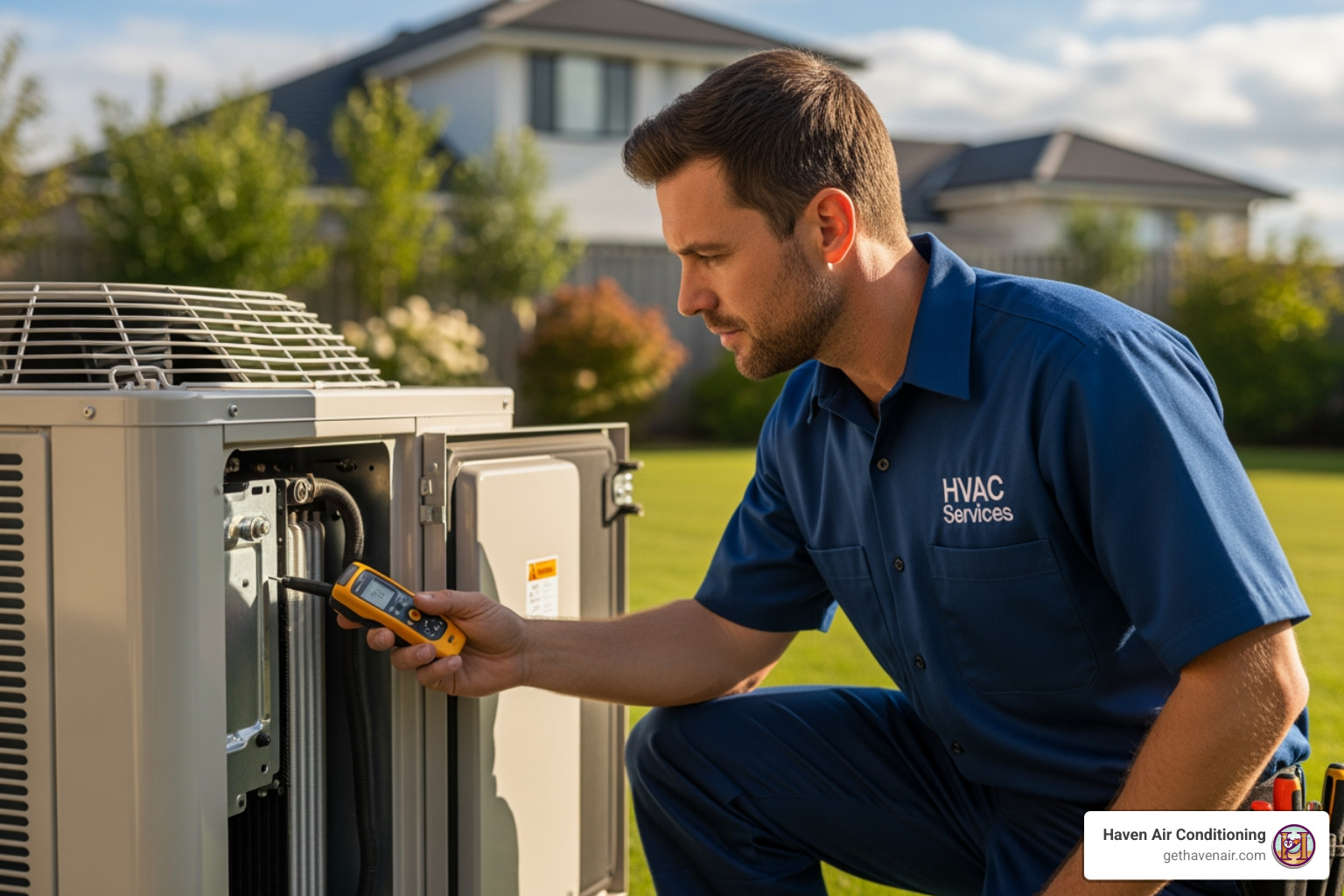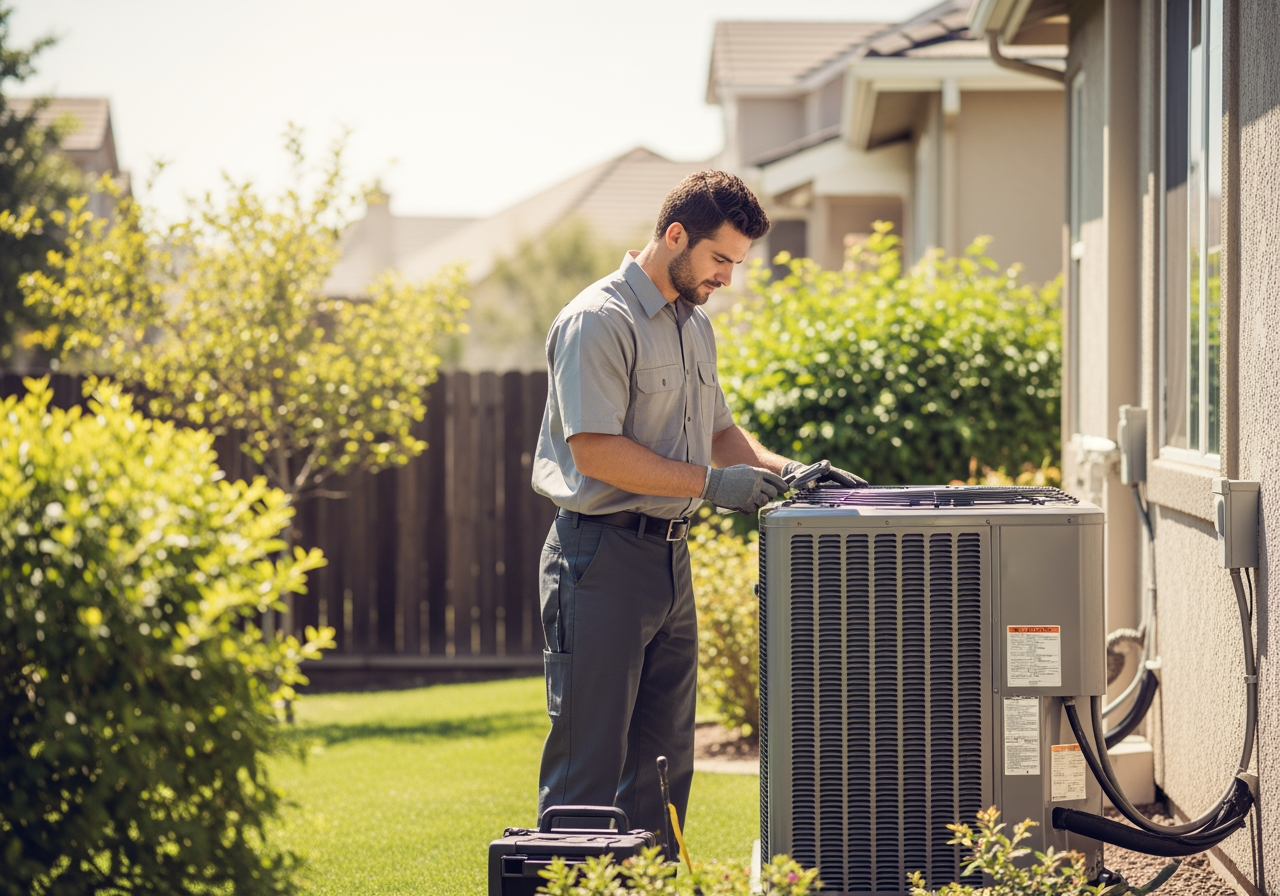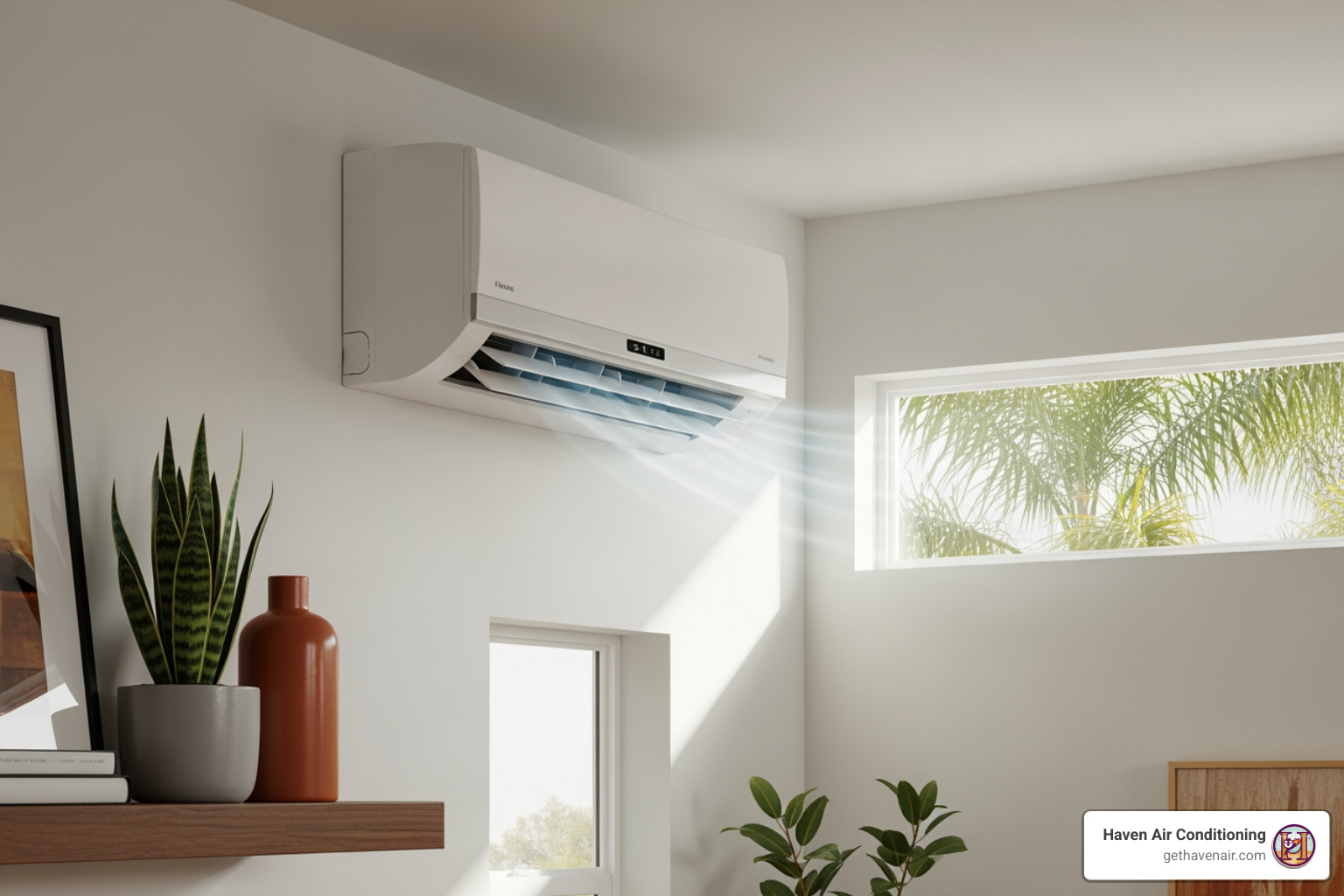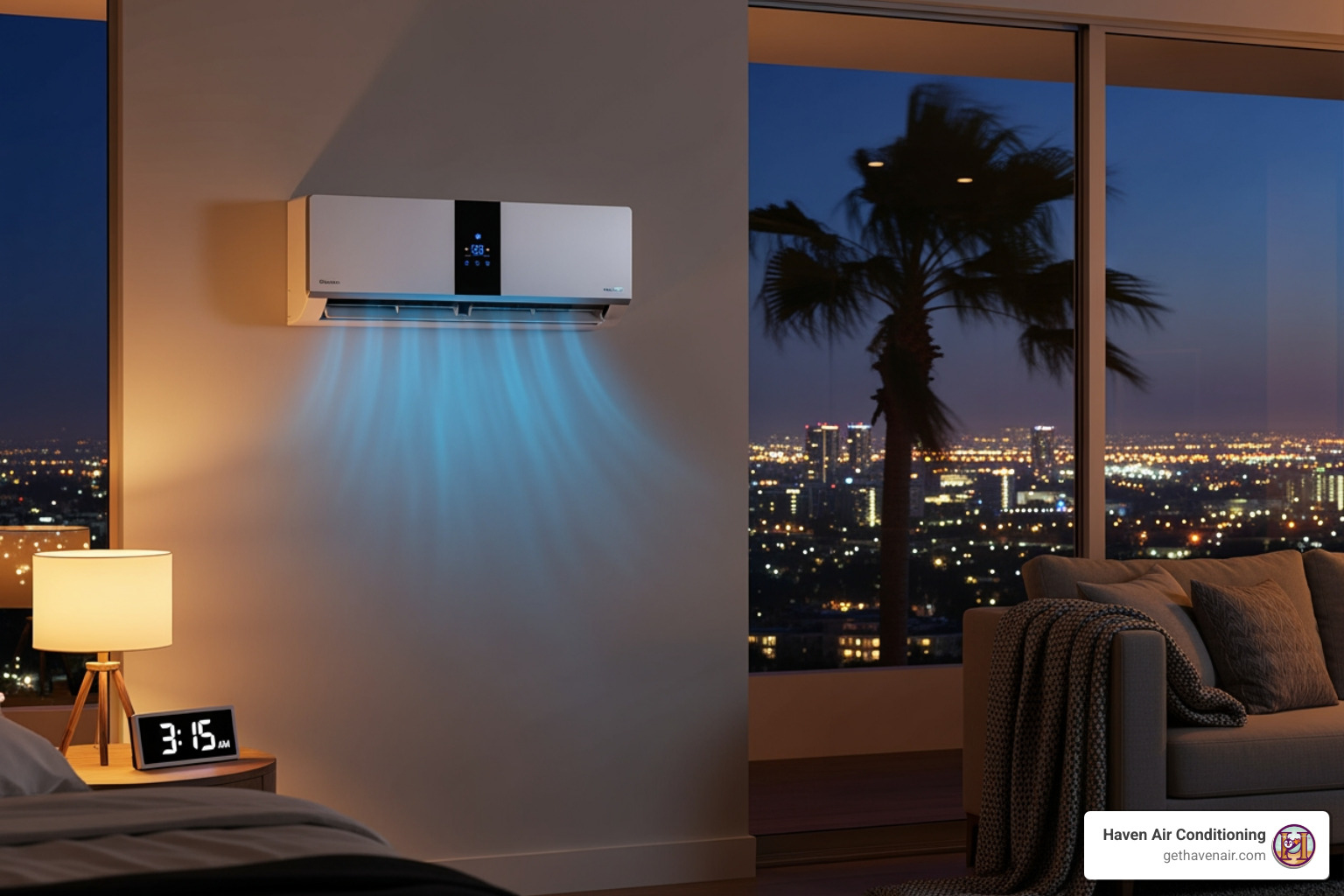Air conditioning systems (AC) play a crucial role in ensuring pleasant indoor temperatures amidst hot summers. Nonetheless, like any mechanical system, AC units possess a finite lifespan. This comprehensive guide delves into the determinants impacting the longevity of an AC unit, indications of AC malfunction, and methods to prolong its lifespan. It offers insights into average lifespans considering different factors.
For expert assistance in air conditioning installation, maintenance, or repair, please contact the Haven Air team. We are dedicated to providing professional services in this field.
Types Of AC
To make an informed decision about the most suitable AC unit for your needs, it’s essential to be familiar with the various types available in the market. Below are the most commonly found types:

1. Window AC
Window AC units are self-contained systems commonly installed in windows or through specially-made wall slots. They are suitable for cooling single rooms or small spaces. These units encompass all components, including the compressor, condenser, expansion valve, and evaporator, within a single box.

2. Split AC
Split AC systems consist of two primary components: an indoor unit and an outdoor unit. The indoor unit, installed inside the room, contains the evaporator coil and cooling fan. The outdoor unit houses the compressor and condenser. Split ACs are ideal for cooling individual rooms or multiple rooms within a residence.
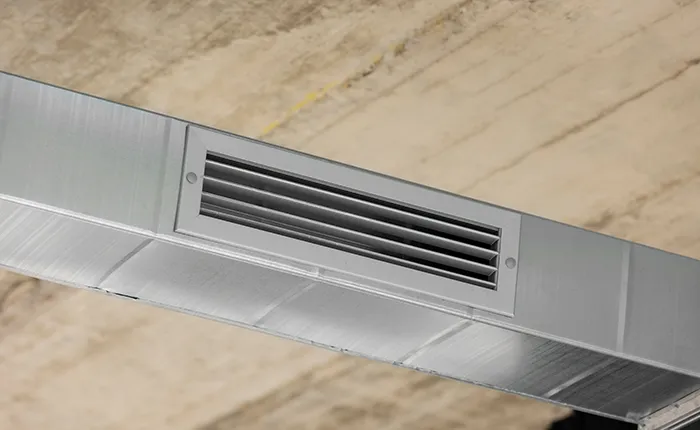
3. Central AC
Central AC systems are designed to cool entire buildings or large areas. They feature a centralized unit connected to a network of air ducts installed throughout the building. This type of AC ensures efficient cooling for multiple rooms simultaneously.
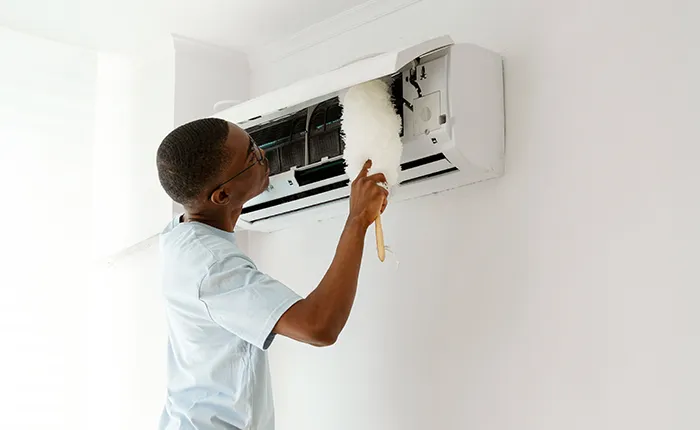
Lifespan Of AC
Various factors can influence the lifespan of an AC unit. On average, AC units typically last around 10 to 15 years. However, some units can surpass this timeframe with adequate maintenance and care.
Read our article about heat pumps’ lifespan.
Factors affecting AC lifespan
Understanding the factors that affect AC lifespan is important for making informed decisions regarding maintenance and replacement. Here are key factors to consider:
1. Maintenance
Regular maintenance is crucial for extending the lifespan of your AC unit. Professional inspections, cleaning, and servicing help identify and address potential issues before they escalate. Routine tasks like filter cleaning/replacement, electrical connection checks, lubrication of moving parts, and monitoring refrigerant levels should be performed.
2. Usage Frequency
The frequency and duration of AC usage impact its lifespan. Units that are consistently used for longer periods may experience more wear and tear. Extensive usage during hot summer months may require frequent maintenance and reduce the unit’s lifespan.
3. Environmental Conditions
The climate and environmental factors in which the AC operates can affect its longevity. High humidity, extreme temperatures, and airborne pollutants in the region can expedite wear and reduce efficiency over time.
4. Quality of Installation
Proper installation significantly contributes to an AC unit’s lifespan. Inadequate installation can lead to issues like insufficient airflow, refrigerant leaks, and inefficient cooling. Engaging a professional HVAC technician experienced in AC installations ensures proper setup, optimizing the unit’s lifespan.
5. Quality of AC Unit
Investing in a high-quality AC unit from a reputable brands can significantly increase its overall lifespan, ensuring durability and reliability.
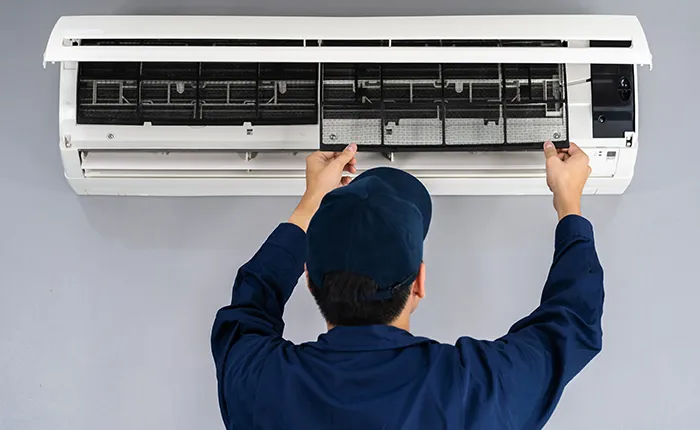
Signs Of AC failure
Being aware of the signs of AC failure empowers you to take timely action and prevent further damage. Keep an eye out for the following indications that your AC unit may be malfunctioning:
- Insufficient or uneven cooling in the room.
- Frequent cycling of the unit, turning on and off repeatedly.
- Unusual noises or vibrations emanating from the AC.
- Foul odors or strange smells when the AC is operational.
- Weak airflow or poor air circulation from the vents.
- Increased energy consumption without improved cooling performance.
- Leaks or moisture surrounding the unit.
- Difficulty starting or powering on the AC.
- Frequent repairs.
By following these guidelines, you can ensure your AC unit’s optimal performance and extended lifespan.
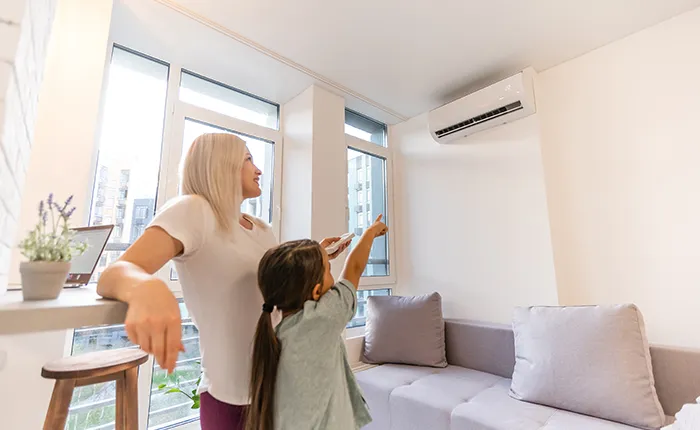
Maximizing Your Air Conditioning Unit’s Lifespan
While the lifespan of an AC unit depends on various factors, you can take measures to maximize its longevity. Consider the following tips to extend the lifespan of your AC:
1. Regular Maintenance
Schedule regular visits from an HVAC technician to inspect and clean AC components, check refrigerant levels, calibrate thermostats, and address any emerging issues proactively.
2. Proper Usage
Use the AC unit judiciously, avoiding excessive or unnecessary operation. Set the thermostat to an appropriate temperature and prevent extreme temperature fluctuations to minimize strain on the system.
3 . Cleaning and Replacing Filters
Clean or replace AC filters regularly. Clogged or dirty filters restrict airflow, reducing efficiency and potentially causing system damage.
4. Timely Repairs
Promptly address any issues or malfunctions. Ignoring minor problems can lead to significant damage and shorten the AC unit’s lifespan. Contact Haven Air technicians for AC repairs if you notice any signs of AC failure.
5. Upgrading Components
Consider upgrading specific components of your AC unit. Installing a programmable thermostat optimizes energy usage, while upgrading to a more efficient compressor enhances overall performance and longevity.
AC Lifespan By Type
Window AC units generally have a shorter lifespan compared to split AC systems or central AC units. The more complex and efficient designs of split ACs and central AC systems, combined with proper maintenance, often contribute to longer lifespans.
AC Lifespan By Climate
The climate in which the AC operates can impact its lifespan. Regions with extreme temperatures, high humidity, or harsh environmental conditions can strain the system, potentially leading to a shorter lifespan. Regular maintenance and protection from environmental elements can help mitigate these effects.
AC Lifespan By Usage
The frequency and duration of AC usage affect its lifespan. Units used extensively during hot summer months or run continuously may experience greater wear and tear, potentially shortening their lifespan. Moderate or intermittent usage can contribute to a longer lifespan.
By considering these factors and implementing appropriate maintenance practices, you can maximize the lifespan of your AC unit, ensuring optimal performance and cost-effectiveness.
Frequently Asked Questions
Can An AC Last 30 Years?
While it’s possible for an AC unit to last 30 years with exceptional care, it’s not common. Most AC units have an average lifespan of 10 to 15 years.
How Often Does An AC Need To Be Replaced?
AC units typically need replacement every 10 to 15 years, although this can vary based on maintenance, usage, and environmental conditions.
Is Replacing AC Worth It?
Deciding to replace an AC depends on its condition, age, efficiency, and repair costs. If it’s older, experiencing frequent breakdowns, or becoming less efficient, replacing it with a newer, energy-efficient model may be worth considering.
Should I Replace The AC Before It Dies?
You don’t have to wait for your AC unit to fail completely. If it’s aging, inefficient, or requiring frequent repairs, a proactive replacement can prevent sudden breakdowns and improve energy efficiency.
How Do You Know If AC Needs To Be Replaced
Signs like frequent breakdowns, decreased cooling, higher energy bills, and costly repairs may indicate the need for AC replacement. Consult an HVAC professional for an accurate assessment.
How Do I Know If My AC Is Dying?
Common signs of a dying AC include frequent breakdowns, reduced cooling capacity, increased energy consumption, strange noises or odors, and poor airflow. Have a professional inspect it if you notice these signs.
Does AC Go Bad If Not Used?
Extended periods of inactivity can lead to dust buildup, corrosion, and component deterioration. Running your AC periodically, even during the off-season, helps maintain its condition.
How Much Does It Cost To Replace An Air Conditioner?
The cost varies based on factors like unit size, system type, installation requirements, and location. Consult HVAC professionals for accurate cost estimates.
For professional air conditioning services, contact Haven Air or visit our AC service page.
Understanding how long your air conditioning unit should last is crucial for making informed decisions about maintenance and replacement. Factors such as the quality of the unit, maintenance frequency, climate, and usage patterns all play roles in determining its longevity. To maximize its lifespan, prioritize regular maintenance, cleaning, use proper settings, and address repairs promptly. When choosing a new unit, consider energy efficiency, size requirements, brand reputation, and warranty coverage. By following these tips, you can ensure optimal performance, longevity, and cool comfort throughout the years!
Read our article if you can put AC units anywhere.
Are you wondering what’s the lifespan of other HVAC systems? Read our guides below:


